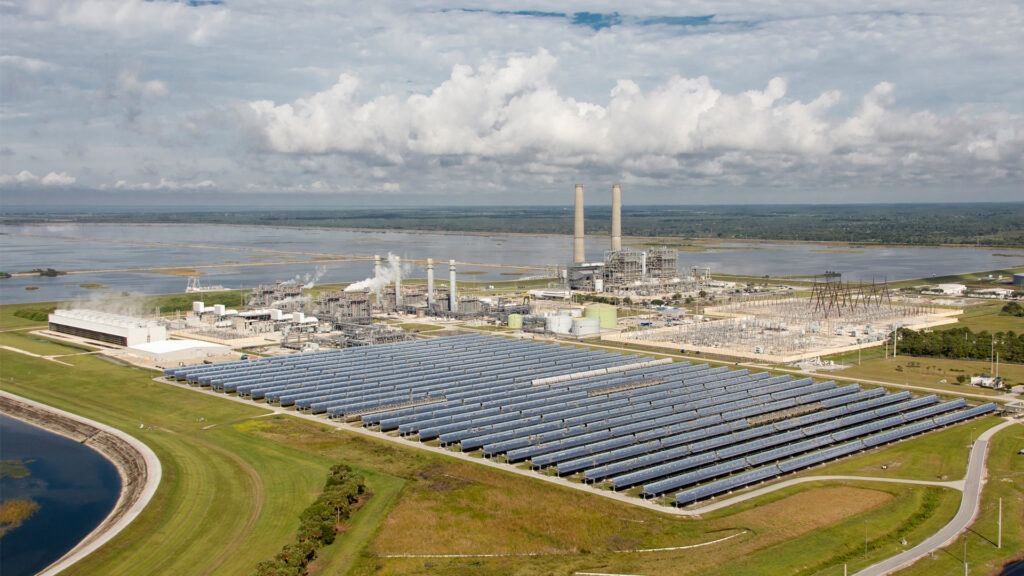By Senanu Simpson, genCLEO
Last year, Florida endured record heat waves and an astonishing 43 days with heat advisories, according to the National Weather Service. This worrying trend for residents and visitors alike has prompted the question of how Florida’s political leaders are addressing events caused by human-induced climate change.
Since the Industrial Revolution, industrial greenhouse gas emissions have warmed average global temperatures at an unprecedented rate. This trend, first known as “global warming” and then most often referred to as “climate change,” intensifies extreme heat and consequently exacerbates heat illness, contributes to sea-level rise and strengthens hurricanes, among several other impacts.
As a Tallahassee native and a second-year student studying environment and society at Florida State University, I’ve become increasingly concerned about the intersection and disconnect between our environmental issues and broader societal challenges. With climate pollution posing a growing and grave threat, there’s a clear imperative that we prioritize policies that are sustainable and begin an equitable transition to clean energy sources.

In the 2024 Florida legislative session, numerous environmental bills were introduced; some aimed at protecting resources while others weakened climate resilience. One such bill, House Bill 1645, titled “Energy Resources,” proposes the establishment of “natural gas resiliency facilities” across the state. These facilities are natural gas storage and transportation centers. While on paper it intends to protect Florida’s public utilities and diversify energy sources, in reality, it includes provisions that will increase the long-term damage to our climate.
Presented as a measure to strengthen energy resilience, HB 1645 prohibits the development, operation and expansion of offshore wind farms entirely in Florida waters. Passing a bill that both encourages energy diversity and bans offshore wind is the epitome of hypocrisy.
Additionally, it preempts municipal planning agencies’ ability to exclude natural gas facilities in a land-use map, zoning district, comprehensive plan or other land development regulation. In other words, these facilities can be built almost anywhere regardless of how an area is zoned.
Moreover, it actually removes language from the majority of state law that acknowledges climate change and the imperative to reduce greenhouse gas emissions. This approach contradicts the reality of Florida’s vulnerability to climate change and the urgent need for sustainable infrastructure.
Expanding natural gas infrastructure perpetuates our reliance on fossil fuels, hindering efforts to transition to clean energy. In fact, in 2022, about 74% of Florida’s net energy generation was from natural gas. In contrast, investing in clean energy would keep energy dollars local and bolster resilience while reducing climate pollution. We are quite literally in the Sunshine State — a perfect place to utilize solar energy.

With an active hurricane season ahead, homeowners — already burdened by high insurance rates — will pay the newly approved relocation costs of gas facilities in their power bills. Moreover, methane emissions from natural gas combustion contribute far more atmospheric heat than carbon dioxide, further intensifying hurricane damage.
It’s counterproductive to expand infrastructure that exacerbates climate-related risks.
Florida’s potential for solar power remains largely untapped. And the state’s big power companies have long ignored the potential for energy efficiency and conservation. The American Council for an Energy Efficient Economy ranks utility energy efficiency programs across the country. Florida Power & Light, the state’s biggest utility program, is 52 out of 53 utilities in offering programs to customers. Duke Florida is 47 and Tampa Electric ranks 40, which means we are wasting precious energy.
To avoid the worst implications of an overheated climate, our policymakers must prioritize sustainable solutions and advance clean energy to the scale that addresses the urgency of the climate crisis. As residents of the Sunshine State, we have a unique opportunity to harness solar energy, while growing the economy with new jobs, reducing climate pollution and leading the transition to a truly sustainable future.
Senanu Simpson is a second-year student at Florida State University and an intern at genCLEO, the youth advocacy movement of the CLEO Institute.
Sign up for The Invading Sea newsletter by visiting here. If you are interested in submitting an opinion piece to The Invading Sea, email Editor Nathan Crabbe at ncrabbe@fau.edu.




Awesome report. Florida is so behind many other states in percentage of energy generated by solar. Governor Ron DeSantis vetoed Florida Solar bill HB 741 helping to protect the future of solar power in Florida.
You struck all the right chords Senanu. I’m sharing this with all my Citizens Climate Lobby chapters in Florida to inspire others to write. Have you thought about forwarding it to your member of Congress. Rep Dunn? You might consider also taking 5 minutes to message his office in support of crucial bipartisan legislation moving in Congress for permitting reform, and consider receiving monthly text reminders to message him (and Senators Rubio and Scott) about national legislation. This app sends you to their office with a suggested message for current legislation. https://citizensclimatelobby.org/text-alerts/
This is great. The legislation shouldn’t ban competition of other viable solutions to alternative energy. It’s bad for business, bad for innovation, and also increasingly risky and prone to fault. Expanding the variety of energy solutions builds more opportunity for businesses. It’s actually a better economy. I mean you can even draw parallels to that and biodiversity. If you remove a variety of plant that doesn’t produce food, the butterfly effect is shuttering. Pulling from different generated energy sources ensure stability from an economic stand point, societal standpoint, logistical standpoint, etc…thanks for the article.